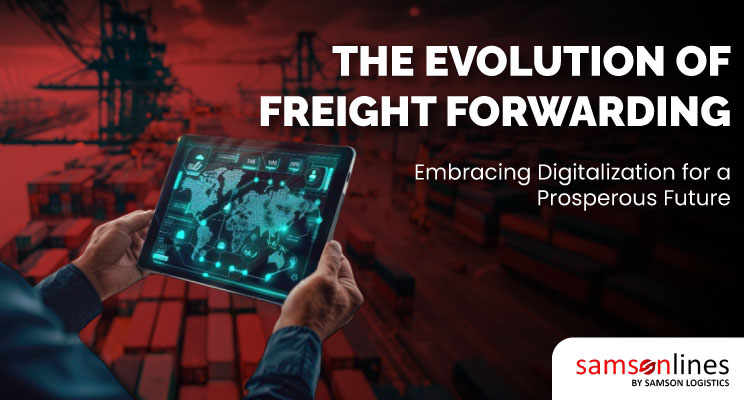
The Evolution of Freight Forwarding: Embracing Digitalization for a Prosperous Future
In an era where global trade is more interconnected than ever, the role of freight forwarding has become increasingly pivotal. As a cornerstone of the logistics industry, freight forwarders have long been responsible for managing the complex intricacies of international shipping. However, the landscape of freight forwarding is undergoing a profound transformation, driven by the relentless march of digitalization.
The Digital Revolution in Freight Forwarding
The traditional methods of freight forwarding, characterized by paper-based processes and manual coordination, are giving way to a more streamlined and efficient digital approach. Digitalization has revolutionized how freight forwarders operate, offering unprecedented efficiency, transparency, and scalability. Key advancements and their impact include:
- Cloud-Based Platforms:
Real-time Visibility: Cloud-based platforms provide stakeholders with real-time tracking and monitoring of shipments, enabling proactive issue resolution and improved customer communication.
Data-Driven Decision Making: These platforms generate valuable data that can be analyzed to optimize routes, identify potential bottlenecks, and enhance overall supply chain performance.
- Internet of Things (IoT):
Enhanced Tracking: IoT-enabled devices, such as sensors and trackers, provide granular visibility into shipment location, temperature, and other critical factors, ensuring the integrity of goods throughout the journey.
Predictive Maintenance: IoT data can be used to predict equipment failures, enabling preventative maintenance and reducing downtime.
- Artificial Intelligence (AI):
Optimized Routing: AI algorithms can analyze vast datasets to determine the most efficient routes, minimizing transportation costs and reducing environmental impact.
Predictive Analytics: AI can predict potential disruptions, such as delays or port congestion, allowing freight forwarders to take proactive measures to mitigate risks.
- Blockchain Technology:
Increased Transparency: Blockchain provides an immutable record of transactions, ensuring transparency and reducing the risk of fraud.
Enhanced Security: Blockchain’s decentralized nature makes it more resistant to cyberattacks, protecting sensitive data.
As the freight forwarding industry continues to evolve, we believe that digitalization will play a crucial role in shaping its future. By embracing these technological advancements, we can create a more efficient, sustainable, and customer-centric industry.
At Samsonlines, we are excited to be at the forefront of this transformation. By leveraging the power of digital technology, we are committed to delivering exceptional freight forwarding solutions that meet the evolving needs of our customers and contribute to a more prosperous global economy.





